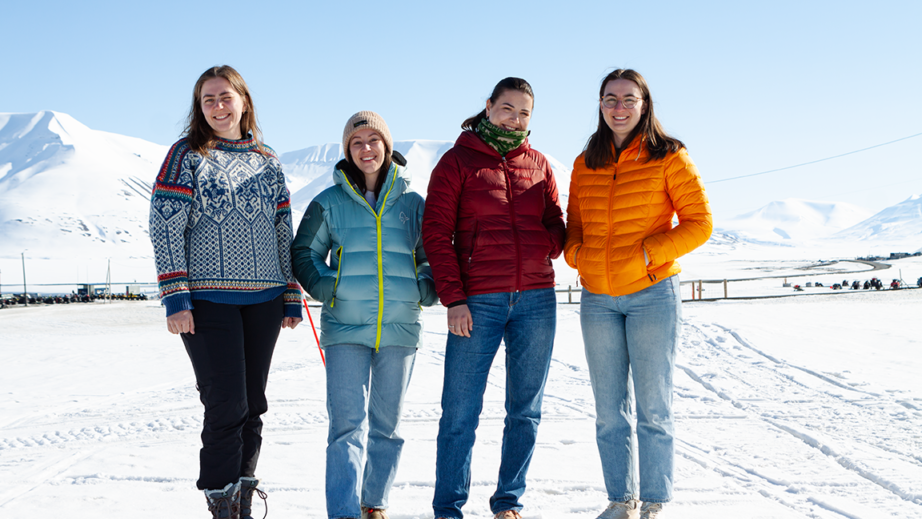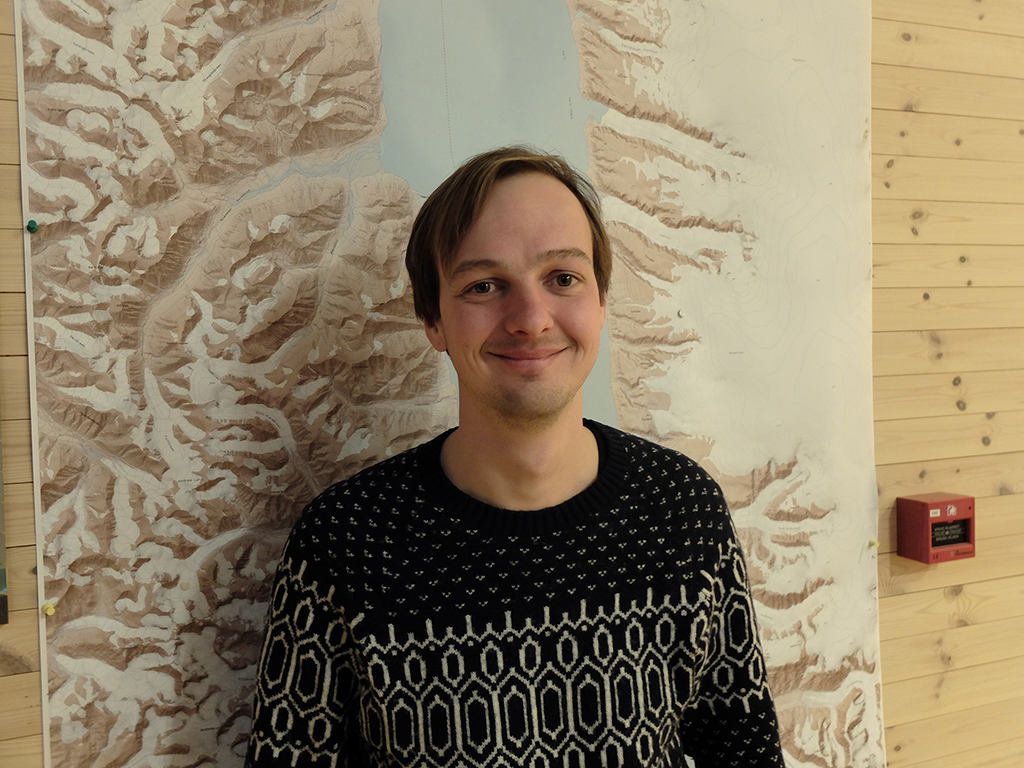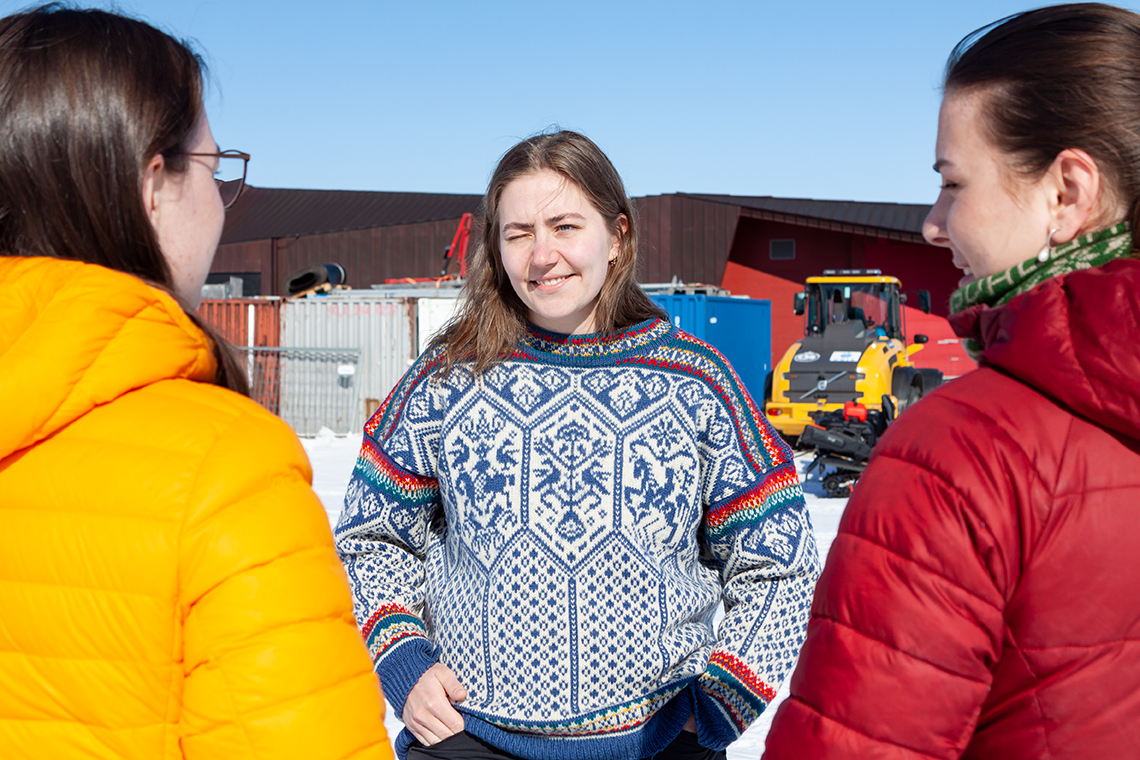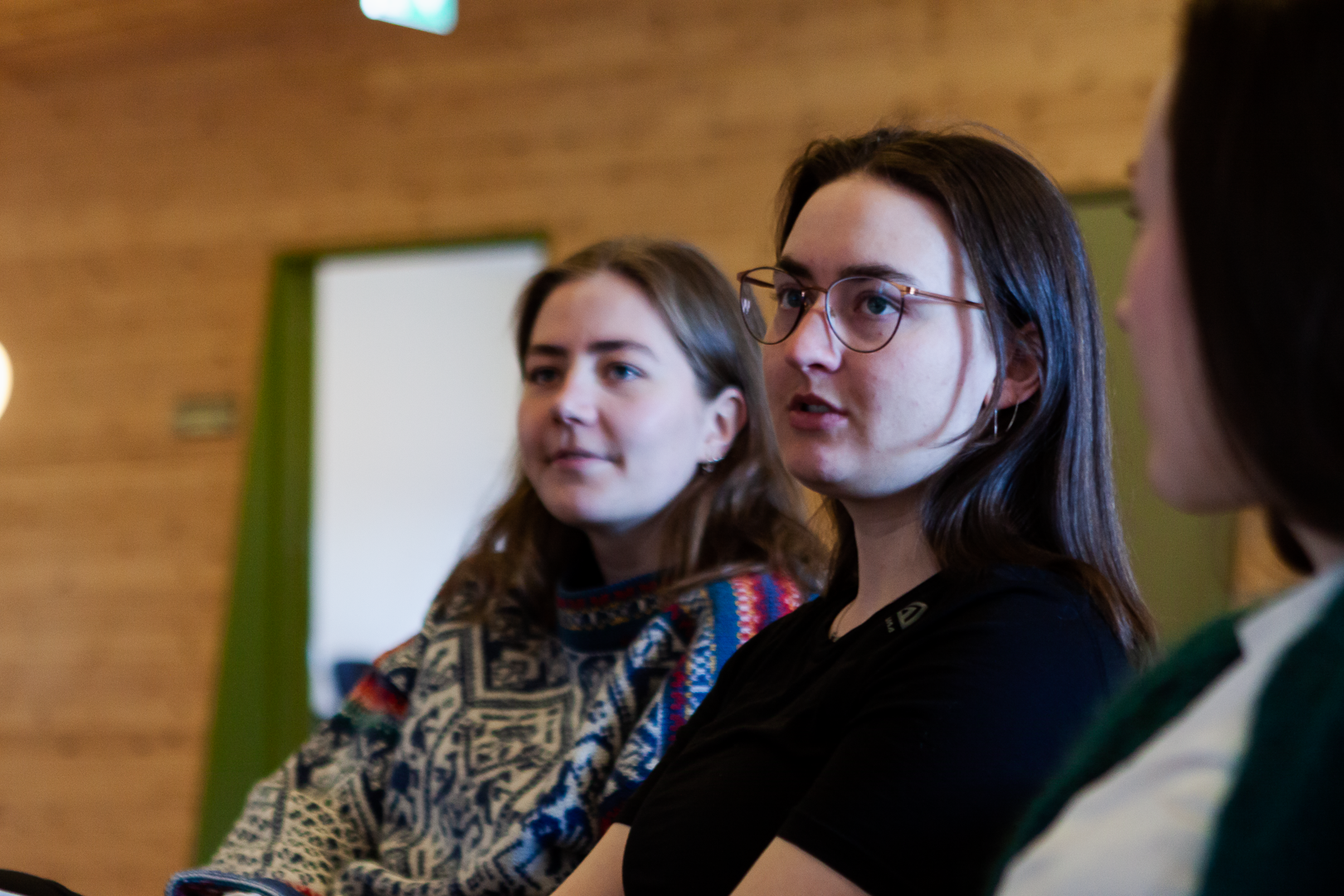Student involvement contributes to enhanced learning experience
Students as partners is a buzzword in academia, and for many years UNIS has been working on the topic, but what does the term mean, and how can one practically facilitate student involvement and partnerships in everyday study life? We had a talk with both staff and students to learn more about the initiatives UNISbreakfast and UNISprout.

There is a good atmosphere among the four students gathered on the couch outside the communication office. All of them are in the middle of their bachelor’s degree, with courses at UNIS. They have all involved themselves in extracurricular activities under the umbrella of Centres for Excellence in Education (SFU). We will hear more about their engagement and experiences, but first, a little more about the SFUs UNIS is a part of.
Two SFUs at UNIS
BioCEED and iEarth are SFUs with learning culture and teaching practices as focus areas. One of the goals is to involve students in the centres’ work by including them as partners, i.e., developers, initiators, and co-creators of their own education. The projects have borne fruit, and several exciting student-driven initiatives with academic and social content have crystallized.
The UNISprout initiative
“Practical training can give students authentic learning experiences and prepare them for a professional career after their studies. It lowers the threshold for contact between students and researchers, and at the same time, undergraduate gain a greater understanding of the academic environment we teach in. This gives students and researchers unique opportunities to collaborate and learn from each other,” explains Sil Schuuring.
He is a PhD candidate and project coordinator for the bioCEED and iEarth initiative UNISprout, which aims to recruit undergraduate students in shorter internships helping master and PhD students conduct their field work.
He communicates with project leaders and bachelor students so that everything runs smoothly. This allows undergraduates to gain experience and assist in real research, and is an excellent opportunity for master’s and PhD students as well to develop their pedagogical skills when supervising the undergraduates.

“UNISprout is a great opportunity for students to gain experience, develop skills, and explore different fields. Students should take advantage of this opportunity while they have it,”
Sil Schuuring
An important message to get out there is the added value to your CV when participating in the project.
Since the practical training is unpaid, the working hours are reduced to 40 hours, also to ensure that the bachelor students have time to join in outside their studies. Each project has learning goals, and students receive a certificate after completing the activity which describes what they did and the skills they learned. The project is also open to all bachelor students at UNIS and promotes interdisciplinary collaboration.
“Student involvement is about giving students a voice in teaching and creating a learning environment where they feel included and engaged. By facilitating student involvement, one can make a positive synergy between students and teachers, leading to better learning and higher motivation among students,” says Shuuring.
UNISbreakfast led by Bachelor students
What about the bachelor students on the couch? They have found another way of engagement. With responsibility for social evenings and lunch gatherings through UNISbreakfast, the undergraduates are left with a good learning outcome.
During their time at UNIS, the bioCEED student representatives Solvor Tønnes Berntsen, and Line Framnes Voldmo organized UNISbreakfast together with iEarth to gather bachelor students for lunch seminars and academic conversations.
All four of those we have spoken to highlight networking and the organizational learning outcome as positive ripple effects.
“The UNISbreakfast intend to bring together the various departments across academic affiliations and inspire younger students. We combine social gatherings with educational content,” says Berntsen.
Line Framnes Voldmo agrees and encourages others to get involved in both being a student representative and participate in the different events and activities that is created for students.


“It has been valuable to be a student representative because you get to know others from different departments and are inspired to academic collaboration across studies. All students should attend the event,” says Line with a smile.
Helene Dreyer and Malene Broholm Nielsen have just started as student representatives for the iEarth project, but they have already held an introductory meeting for other students. They have also had several social evenings with pizza nights, board games, and quizzes. Although it has been mostly social, they try to sneak in academic content where they can, such as during quiz nights.
Helene Dreyer says that they are left with good organizational competence. “And in addition, we build networks both here at UNIS and with people from other universities or professions.”
Malene Broholm Nielsen recommends people engage themselves beyond the purely academic.
“It doesn’t require too much that it affects teaching; besides, it’s a lot of fun,” she says.
In addition to internal, interdisciplinary collaborations, experiences from other universities are also drawn upon. The student representatives have regular meetings with other SFUs where they can share ideas and experiences. All in all, the different arenas provide a safe meeting place for young students in their educational path.
“It’s nice to learn from others that everything doesn’t always go according to plan, but everything will eventually work out,” says Malene Broholm Nielsen.
About Students as partners
Students as partners refers to an educational approach that promotes meaningful collaboration between students and faculty staff in various aspects of the learning process. Students are actively engaged in co-designing curriculum, developing teaching strategies and participating in decision-making processes within the educational institution. This approach emphasizes shared responsibilities and fosters a sense of ownership, autonomy and motivation among students.
Students as partners are an important and essential priority for the SFUs at UNIS. Students are involved in a variety of roles; they initiate, participate, contribute, and lead educational projects and activities in collaboration with bioCEED and iEarth, and with their partner institutions.
Student representatives in bioCEED and iEarth
At UNIS each Centre for Excellence in Education (SFU) have several student representatives who is appointed for a half year or longer. The student representatives represent the students in the steering group and board within each SFU and collaborate with teaching and administrative staff on developing excellence in higher education (students as partners).
Some of the major initiatives and development projects coming from the SFUs and students at UNIS are UNISbreakfast, UNISprout, SCOPE and UNISoracle. Student representatives are responsible for running the midterm course evaluations, as well as arranging different seminars for their fellow students. Students have been involved in developing learning platforms and tools as the “Learning Arctic Biology platform” and the “ArtsApp” as seen in the biology department and student representatives are also part of the committee work for the student program of the Learning Forum.